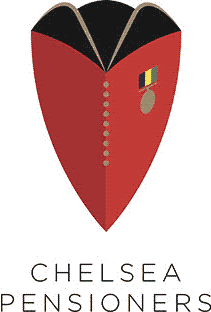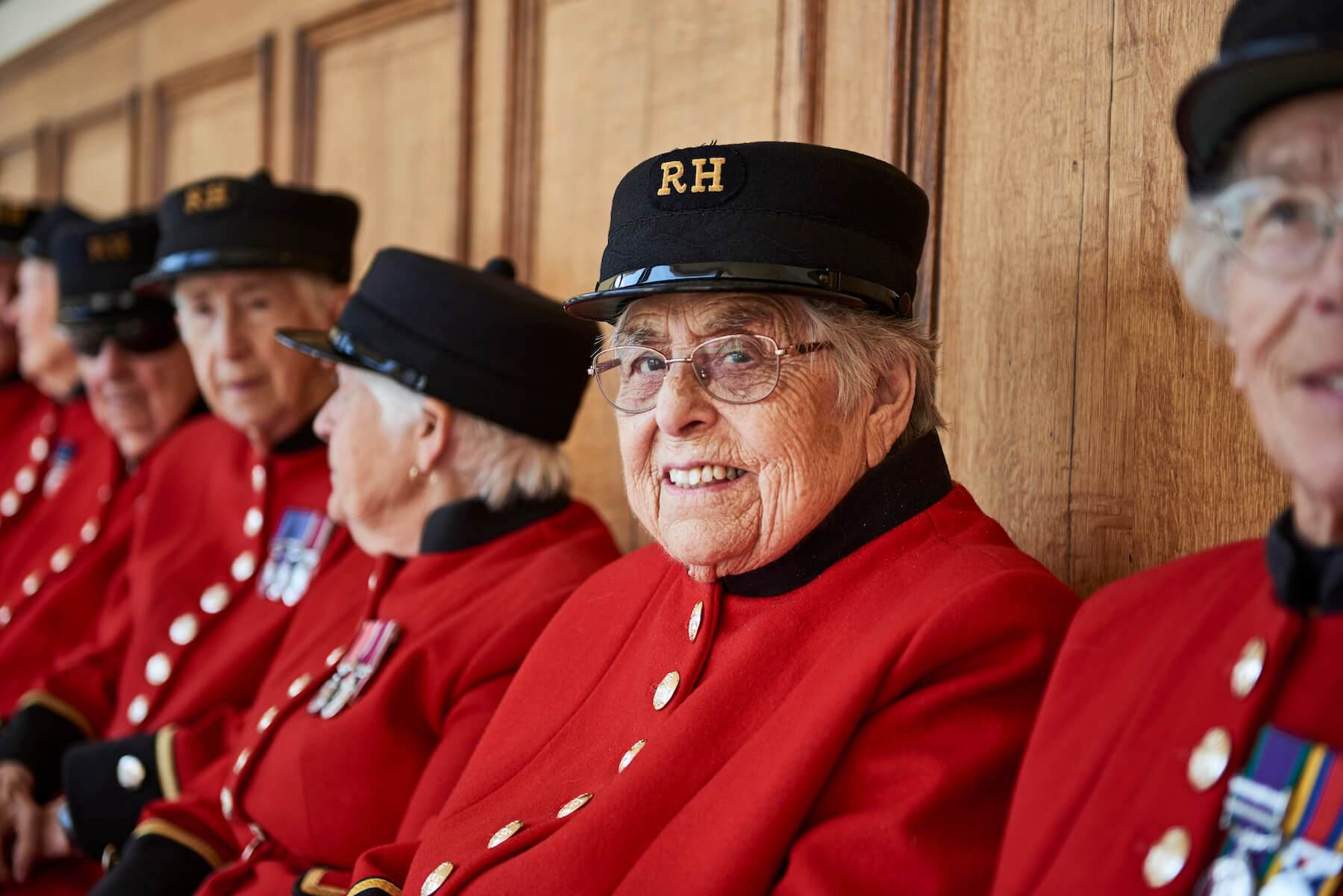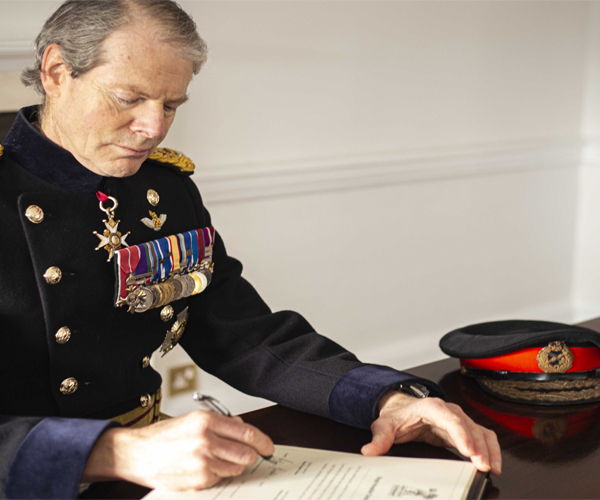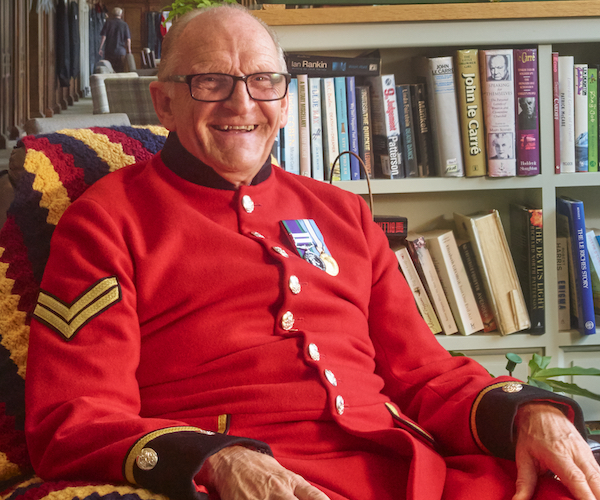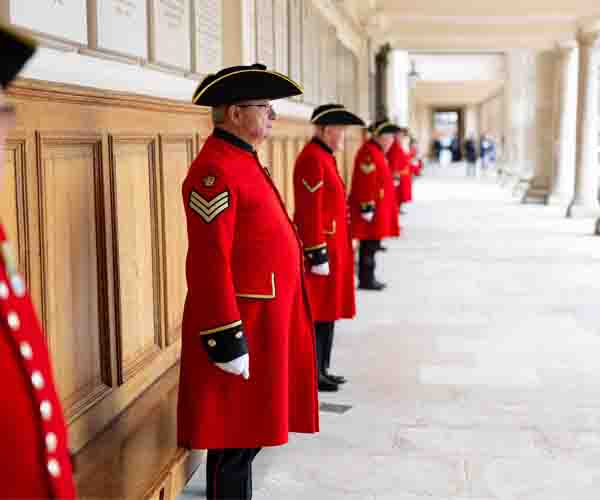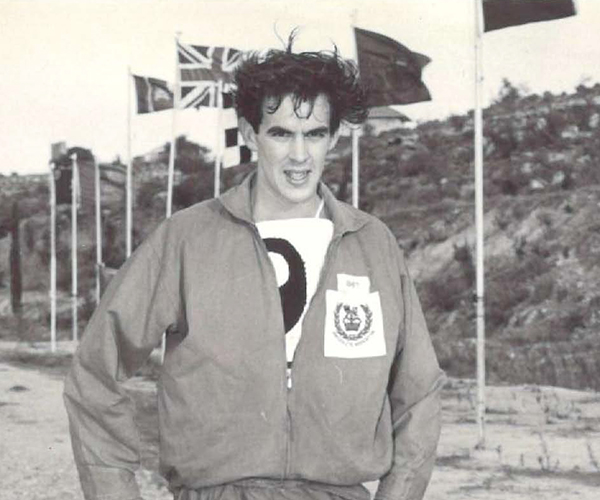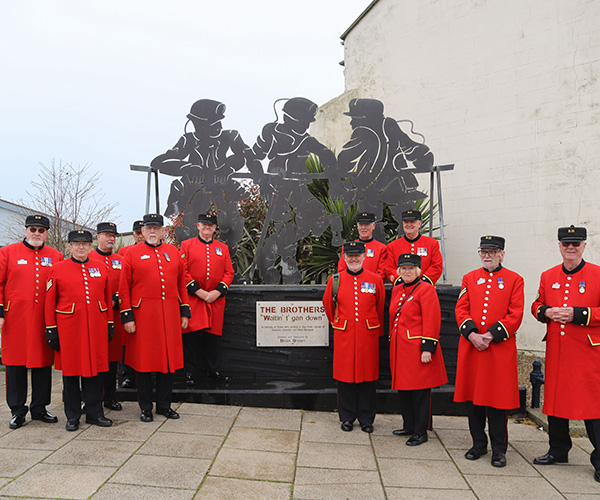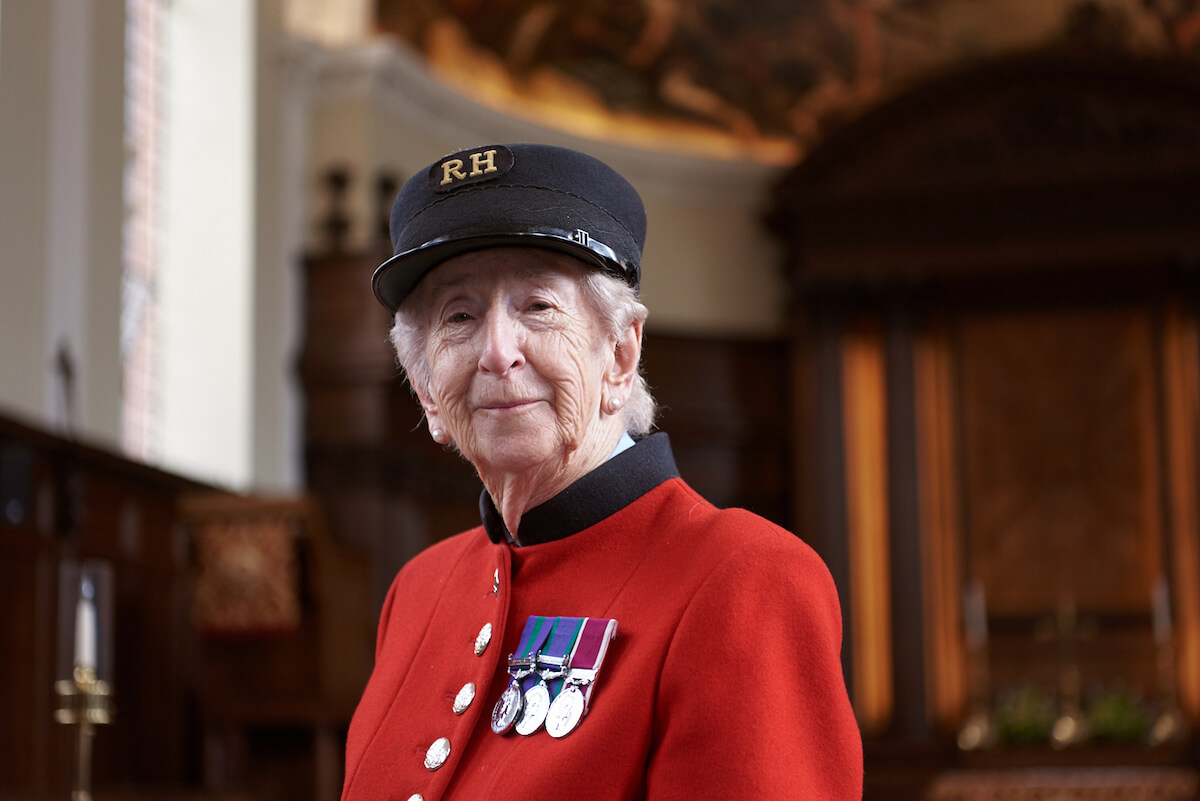
Women in a men’s world
8th March 2021
Meet two Chelsea Pensioners who challenged stereotypes
To mark International Women’s Day, we celebrate two female Chelsea Pensioners who challenged stereotypes in the Army and beyond.
Charmaine and Pamela were both born in 1932, brought up in female households and joined the Army as teenagers. At a time when most women didn’t work and gender roles were clearly delineated, they succeeded in a male-dominated world.
Charmaine’s story
My mum brought me up – my father was a womaniser, I gather. When I was 15 or 16, I was working at London Hospital testing surgical cat gut. I didn’t like it, so I joined up. I got a chance to go on a driving course and managed to get an HGV licence. After three years, I was told I could sign up for another three years or for 22. I enjoyed what I was doing, so I decided to stay for 22 years.
I’d seen two military police ladies who came to give us a talk with their lance corporal stripes, a military police armband and a service dress cap with a red cover and I thought, “That’s what I want to do”. So I went on a nine-week course and passed.
“I served in the Royal Military Police in Cyprus, Northern Ireland and Germany”
My first posting was to Cyprus during the IRA troubles. I served twice in Northern Ireland, in Dusseldorf and for three and a half years in Berlin, when the wall was still up. We used to drive people along the corridor and escort people leaving Berlin down to Helmstead. I got made up to a staff sergeant when I was there – that’s three stripes and a crown.
“It was unusual being a woman HGV driver”
After I left the Army, I worked on security for Trusthouse Forte and then as an HGV driver for Melton Borough Council. It was unusual being a woman. It took about a year for them to accept me – I wasn’t one of those helpless types.
I progressed up to HGV 2 while I was there. I drove the cesspit tanker and the gulley sucker – that’s clearing the drains with suction. There were two of us in the cab, one driving and the other lifting all these drains up, putting the suction thing in and getting the rubbish out. Then I
drove the gritter and snow plough. The chap who used to sit with me he didn’t have a licence, so I did all the driving and he turned the handle and let out all the sand and grit. Afterwards I had to get back to the garage and reverse it in.
“As a Chelsea Pensioner I’ve done a parachute jump, a wing walk and a death slide”
I liked everything about the Army and enjoyed all the sport. I went skiing in Germany and did a 14-week fencing course in Aldershot, which I enjoyed. I was the only woman on it. I’m more of a tomboy.
I temped twice in the outward-bound school in Aberdovey in Wales while I was in the Army – canoeing, rock climbing and that. I also did a 10-week parachuting course – free fall.
After I became a Chelsea Pensioner, one of the Captains said, “What about doing a tandem jump?” I was out first and took ages to come down because the fellas were all bigger and heavier than me.
Then this wing walk came up, where you get strapped to a post on a plane. You go about 100 miles an hour! I enjoy the thrill of it. After that, I did a death slide in Llandudno – you lay flat and get sent over the slate mines on a zip wire. I did ask to abseil the Shard but they said no way! They say it’s a bit dodgy when you get to my age – I’ve got two titanium knees and two plates in my right hip.
I’ve also been backpacking in New Zealand and to the Galapagos Islands and to Costa Rica.
“I’ve always been one of the lads”
There are no difficulties about being a woman here. The majority of the men accept us now. My mum brought me up as a feminine girl, but I have just one dress and one skirt and fifteen pairs of trousers in different colours! I never wanted to get married – I was one of the lads.
Pamela’s story
I was mainly brought up by my grandmother – she had been working since she was 10 years old as a kipper girl, following the fishing boats around the coast. When I was 17, I got the forms from the Army recruiting office and my grandma put her sign, because she couldn’t read or write.
After basic training, I was sent to Bicester to work with the Ordnance Corps – that’s where the labour shortage was. The Korean War was on and we were duplicating supplies to go out there. I was working on signals parts. It was a boring job but a happy time.
“Both us girls got 100% – they wanted to know if we were cheating!”
When I was at Bicester, there was some trouble with the civilian staff, because they wanted to move some military staff in, and they wouldn’t work with the civilian girls. I’d been promoted to lance corporal and me and this other girl had to report four times a day, but we couldn’t work!
As you can imagine, it was boring. So, I went to the office and asked for some books to do with our job. We genned up on everything. And when the staff sergeant put us in for a B2 upgrading test we both got 100%. There were corporals taking the B2 and nobody else got it – they wanted to know if we were cheating! I said, “How could we cheat?” and they said, “Nobody’s ever done that before”.
“I got the B1 qualification and came top of the course”
Then I was posted to Chilwell and was sent on a B1 course there – little me with all these sergeants and staff sergeants! I thought it was going to be a nightmare, but it was a doddle! I never did any homework. The lads were getting together to study and they asked me if I wanted to join them. I said, “No I’m alright”. I got the B1 – the highest you can get – and came top of the course.
Later, I was promoted to Lance Corporal and posted to an ammunitions site, supervising with my friend Cath. I think every troublemaker in WRAC Ordnance was there! Six weeks later I was a sergeant!
Afterwards I went on a clerical course and was posted to a TA unit in Swansea, but it didn’t suit me, so I came out of the Army for a year and half.
“You had to come out of the Army when you married in those days”
I was one of three females in the Royal Signals chosen to be a new grade and posted to Brighton to do a cipher course. Then I got married and you had to come out of the Army in those days. It was a big mistake. It didn’t work out. He was sent to Aden for nearly two years.
They’d started sending signal girls there and I knew them because I’d trained them – they used to come to me for advice. I realised how much I was missing. They’d chosen me to take part in this new trade in signals and I’d got married and missed the boat.
“If it wasn’t for the Army, I wouldn’t have had the education or the opportunities”
My husband and I ended up going our separate ways and I got a job in GCHQ in Cheltenham for the Foreign Office. It was signals, what I’d always wanted, and I loved it. I stayed for 30 years.
If it hadn’t been for the education and training I got in the Army I wouldn’t have had the opportunity. I had two B1s, a B2 and a B3 qualifications. My mum was really proud because I just went to a secondary modern.
